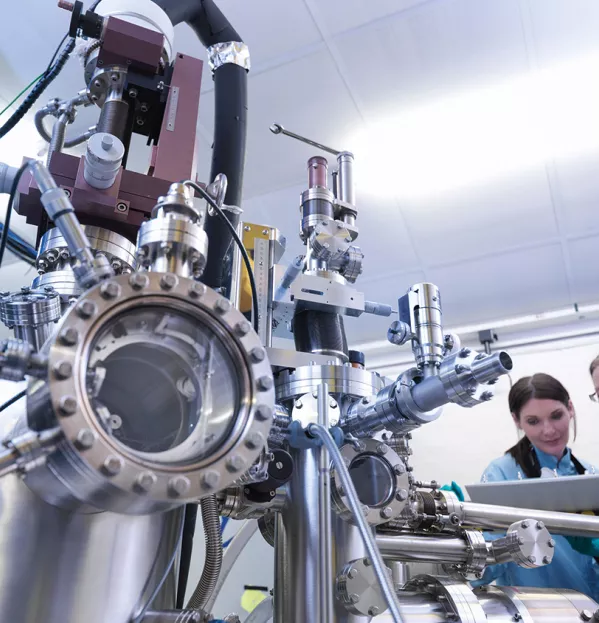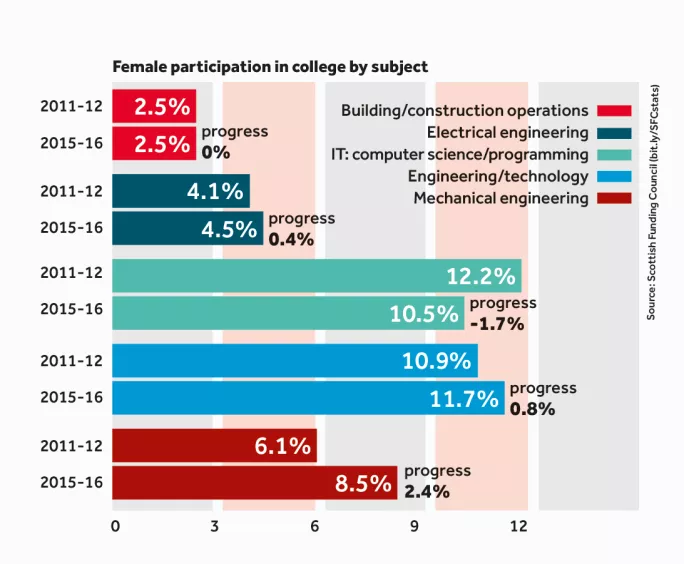Recalibrate the Stem system to boost equality and prosperity

It is six years since the Royal Society of Edinburgh (RSE) set out its bold recommendations to improve the representation of women in science, technology, engineering and maths (Stem). The findings of Tapping All Our Talents had been damning, with only a small proportion of women with degrees in Stem working in Stem-related jobs - and even fewer making it to the top of the hierarchy in universities.
Now, the organisation has decided to launch a further review into the issue, to assess if any progress has been made and whether Scotland has moved closer to realising the economic and social rewards that a more equal Stem workforce can bring. As part of that, the RSE earlier this week launched an open consultation to inform the report, which closes at the end of April.
Dame Professor Jocelyn Bell Burnell, president of the RSE, says it is crucial to revisit the work of the 2012 report. “We showed that there was a large, untapped resource in our Stem workforce. I am eager to hear the results of this review, and see the progress that has been made in Scotland in the past six years.”
Lesley Yellowlees, former vice-principal and head of the College of Science and Engineering at the University of Edinburgh, who will chair the review, says she believes there has been progress, but says it will be important to gauge exactly how much. “We know there is still so much to be done around Stem.”
Colleges and apprenticeships will play a significant role in this report, Yellowlees stresses: “We are keen to have colleges absolutely integral to this.”
She highlights that the Modern Apprenticeships programme has grown significantly since the last report, and therefore has to be considered.
“We know that around 50 per cent of young people go to university now, but that also means that 50 per cent don’t, so we need to look at the more vocational aspects of the education system as well. We know that in terms of apprenticeships in Stem-related areas, it has been more men taking those up.”
Opening up opportunities
While Yellowlees believes that the government was right to grow the apprenticeship programme and focus on it, she does not feel that the opportunities around the Modern Apprenticeships programme are open to “the entire population” yet. “We want to look at that,” she says. Industry, primary and secondary education will also form part of the review this time, she adds.
Douglas Morrison, Stem and innovation lead at City of Glasgow College and director of the Scottish Institute of Innovation and Knowledge Exchange, represents the college sector in the review.
He believes that although progress has been made, the cohorts currently in colleges clearly show that more work needs to be done for girls in Stem if it is to become “mainstream”. His own college, he says, has had great success in raising the participation of women and girls with Women into Engineering, Women into Construction and Girls into Construction programmes.
“The construction ones have probably been our most successful to date,” says Morrison. “The sector average for that is about six per cent, and we have got that to about 20 per cent. These programmes do work.”
Achieving ambitions
However, Morrison says ensuring there are employment opportunities for female college leavers is just as important, and that the college is involved in a pan-European programme to support small and medium-sized enterprises in ensuring diversity in their workplaces.
Shirley-Anne Somerville, minister for further education, higher education and science, says: “Developing Scotland’s Stem talent is key to achieving our ambitions of being a modern, dynamic and open economy - and tackling the under-representation of females in Stem careers is an important part of achieving that goal.
“Our Stem strategy, which was launched in October, includes specific actions to address the gender imbalance in Stem across education and training.
“I welcome the RSE’s continued interest in the Stem workforce and I am keen to work closely with them to connect their findings with our ongoing work in this area.”

You need a Tes subscription to read this article
Subscribe now to read this article and get other subscriber-only content:
- Unlimited access to all Tes magazine content
- Exclusive subscriber-only stories
- Award-winning email newsletters
Already a subscriber? Log in
You need a subscription to read this article
Subscribe now to read this article and get other subscriber-only content, including:
- Unlimited access to all Tes magazine content
- Exclusive subscriber-only stories
- Award-winning email newsletters